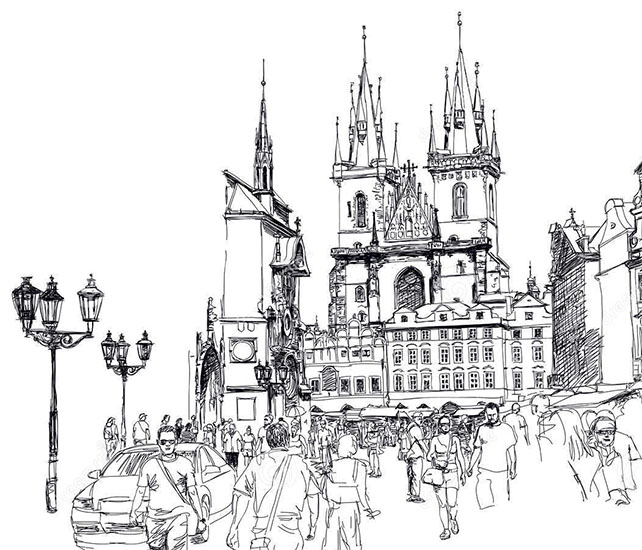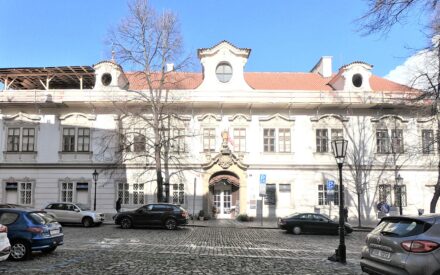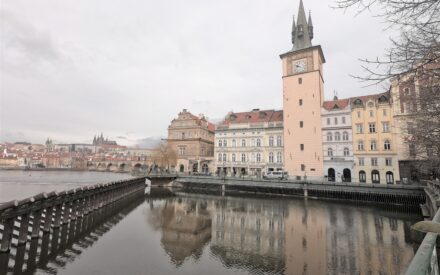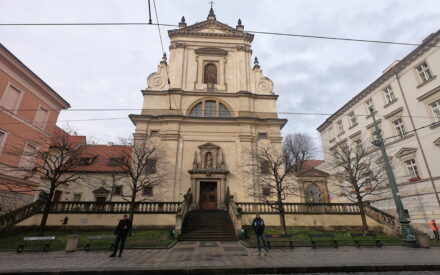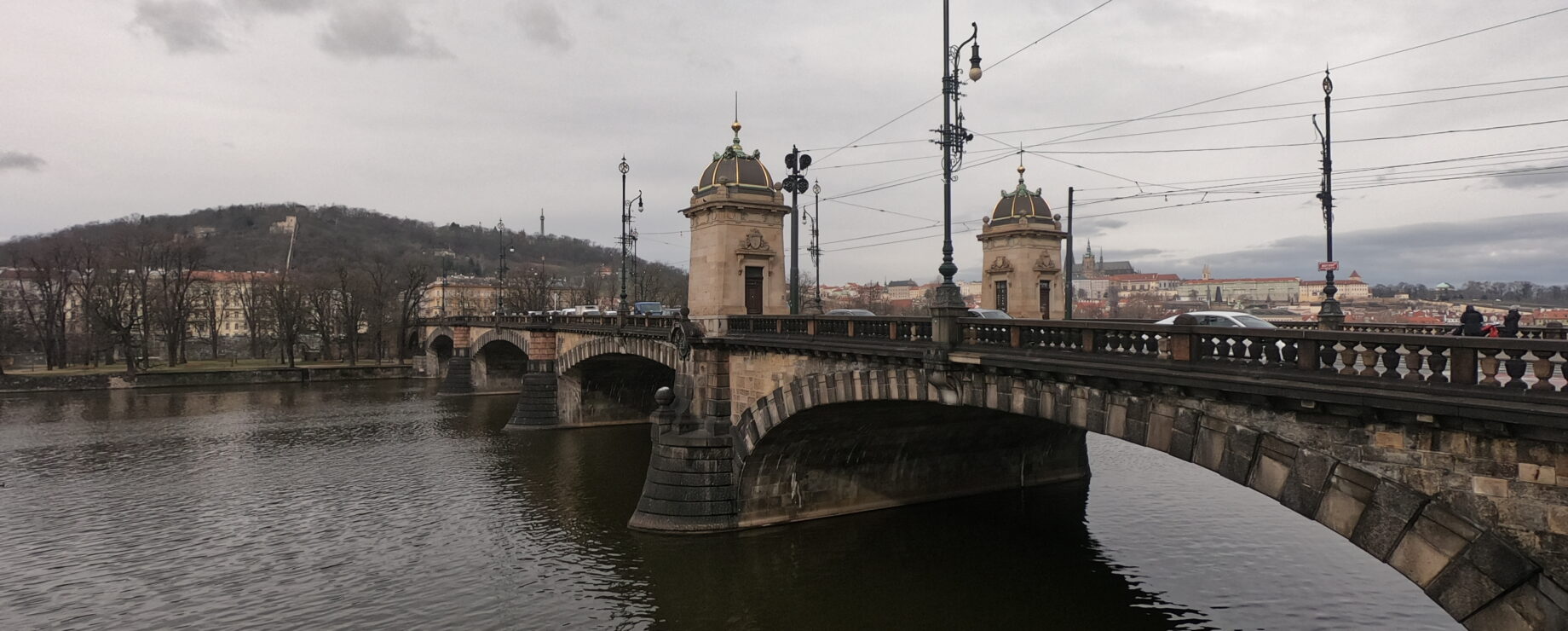
Bridge of the Legions
This bridge was opened in 1901 in the presence of the Emperor Franz Josef. And until the beginning of the First World War a fee was payable by anyone who wanted to cross the River Vltava. Only soldiers were exempt. The means of payment was the so-called bridge kreutzer, references to which can be found in works by a number of Prague writers. Franz Kafka mentions it, for example, in his diary record from 26. 12. 1911, where he states “on a small list of things which today can easily be shown as old-fashioned“. In his Prague Triptych Johannes Urzidil tells of how he always enjoyed it when, with an innocent expression on his face, he laid a kreutzer in the toll collectors’ flat palms covered in the thick mittens that were worn in heavy frosts. The collectors then noisily swore and cursed the Germans and Jews, while trying hard to keep these little coins with their clumsy, wide and thick gloves from falling to the ground. And Egon Erwin Kisch, in his column, Kreutzer across the Bridge (Krejcar přes most), describes how he and his nine fellow pupils got the collector angry by asking him to return the change from a twenty-crown note. It turned out they could not fulfil their civic duty and pay the bridge toll because the bridge keeper had slammed his booth shut. The most beautiful story concerning Prague bridges though was recounted by Jaroslav Hašek:
Jaroslav Hašek: Humourous Tales
The Official Zeal of Mr Štěpán Brych, the Toll Collector on a Prague Bridge
One day Mr Pojsl, the head of the Building Department of the City Council came to the toll collector’s booth and said to Mr Štěpán Brych: ”My friend, will you allow me to go across the bridge for free? I’m in a hurry to get to Smíchov and I’ve left my wallet at home.“
How could Štěpán Brych not recognise his Boss? He liked him very much and respected him highly, and this made for a cruel struggle between his love for his superiors and his official duty.
The fact that the City Councillor had crossed the borderline was denoted by the abruptly outstretched hand and Štěpán Brych pulled Mr Pojsl by his coat. Duty had prevailed.
”Come back, or else pay a kreutzer!“ he said dryly in an officious tone.
”You must be joking!”
Štěpán Brych motioned to the policeman, lurking around by the booth like a spider lying in wait for a fly, and called out these two words: ”Take him!“
And when the policeman led the City Councillor away after the usual incantatory formula: ”Are you going to come quietly or do I have to arrest you?” a teardrop appeared in Brutus’s eye and for the first time in his life Štěpán Brych wept.
A fortnight later a small and poignant celebration was held at the office of the Building Department of the Town Hall. The Town Hall bestowed a bronze medal for loyal services on the toll collector, Štěpán Brych, at the request of the very same City Councillor, Pojsl, who, after this scandal, was forcibly sent back to the Town Hall.
Since receiving that award Štěpán Brych has become stricter than ever.
This guided walk is a part of the “Democracy on the Brink. Historical lessons from the late 1930s” project supported by the Europe for Citizens programme of the European Union.
Další místa na téma "A literary walk through Kafka’s Prague on the trail of his story Description of a Struggle"
